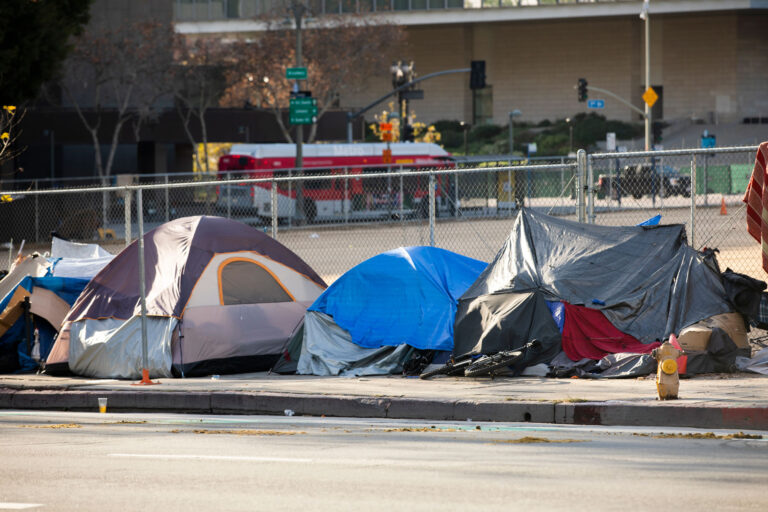
The Concept Of A Unified National Strategy
As the United States grapples with the intertwined challenges of homelessness, natural disasters, and healthcare disparities, the need for a cohesive national strategy has never been more urgent. The current state-by-state approach has led to inconsistent policies and inadequate responses, leaving vulnerable populations at risk and exacerbating regional inequalities. A unified national framework is essential to ensure that all citizens receive equitable support, regardless of where they live, and to build a more resilient and prepared nation for the future.
Expanding on this idea requires addressing the interconnected nature of homelessness, natural disasters, and healthcare. These issues are not isolated; they often exacerbate one another, making a comprehensive national policy essential for effective management.
The Need for a National Framework
A fragmented approach, where states are left to their own devices, has proven ineffective in addressing the pressing challenges of homelessness, natural disasters, and healthcare. Each state has its own resources, governance, and priorities, leading to significant disparities in how these issues are handled. For example, a state with a robust healthcare system may effectively manage a public health crisis, while a neighboring state with fewer resources may struggle, causing a spillover effect that impacts the entire region. Similarly, inconsistent policies on homelessness can lead to migration between states, further complicating efforts to provide stable, long-term solutions.
A national framework would ensure that all states adhere to a baseline standard of care and response, providing a more unified and effective approach. This would not only improve outcomes but also foster a sense of national solidarity, where every citizen, regardless of their state of residence, receives equitable treatment and support.
Addressing Homelessness
Homelessness is a multifaceted issue that intersects with healthcare, mental health, and economic policy. A national policy must address these intersections by providing comprehensive support that includes housing, mental health services, and job training programs. The “Housing First” model, which prioritizes providing permanent housing to the homeless before addressing other needs, has shown success in various parts of the country and could serve as a cornerstone of a national policy.
Moreover, a national strategy should include the development of affordable housing, coupled with rent controls and tenant protections, to prevent homelessness before it starts. By standardizing these policies across the country, we can reduce the disparities that currently exist between states.
Natural Disasters and Emergency Response
Natural disasters do not respect state boundaries, and the impact of a disaster in one state can have far-reaching consequences for neighboring regions. A fragmented approach to disaster preparedness and response leaves communities vulnerable and exacerbates the damage caused by such events.
FEMA (Federal Emergency Management Agency) has been criticized for its inconsistent responses and lack of preparedness, which underscores the need for a more coordinated national strategy. This strategy should include standardized emergency response protocols, better resource allocation, and a robust early warning system that is integrated across all states.
In addition, there should be a focus on climate resilience, with national investments in infrastructure that can withstand extreme weather events. This includes upgrading power grids, improving water management systems, and reinforcing buildings to make them more resistant to hurricanes, floods, and earthquakes. By adopting a national approach, we can ensure that all states are better prepared for natural disasters, reducing the loss of life and property.
Healthcare as a Cornerstone of National Policy
The COVID-19 pandemic highlighted the weaknesses in the U.S. healthcare system, particularly the disparities between states in terms of healthcare access and quality. A national healthcare policy would aim to close these gaps by ensuring that all Americans have access to affordable, high-quality healthcare, regardless of where they live.
This policy should include a universal healthcare system that provides coverage for all citizens, with a focus on preventative care, mental health services, and long-term care for chronic conditions. By standardizing healthcare across the nation, we can reduce the inequalities that currently exist and improve overall public health outcomes.
Furthermore, healthcare should be integrated into disaster preparedness and homelessness policies. For example, ensuring that the homeless have access to healthcare can prevent minor health issues from becoming major crises. Similarly, integrating healthcare into disaster response can help mitigate the long-term health impacts of natural disasters.
The Political Challenge
Implementing national policies in these areas is a political challenge, given the current state of American federalism and the deep divisions that exist between states. However, the urgency of these issues requires bold action. Advocates for national policies must build broad coalitions that include state and local governments, non-profit organizations, and the private sector. By demonstrating the benefits of a unified approach—such as cost savings, improved outcomes, and greater equity—these coalitions can help overcome political resistance.
Conclusion
The challenges of homelessness, natural disasters, and healthcare are too significant and too interconnected to be addressed effectively by individual states. A national policy framework is necessary to ensure that all Americans receive the support and protection they need. While the political obstacles are substantial, the potential benefits of a national approach far outweigh the costs, making it an essential step toward a more resilient and equitable society.













